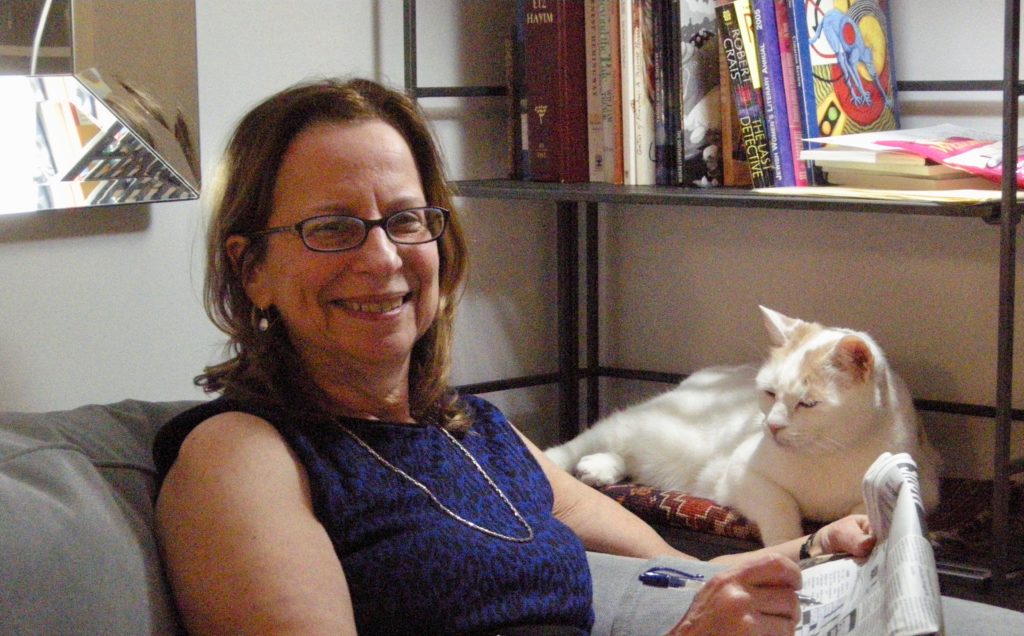
What’s the most important lesson you’ve learned as a writer?
Over the past year or more I have shifted from writing mostly flash fiction to longer works. During this time, I have worked with a wonderful fiction writer and writing coach, Karen Bender. When I show Karen a story, she often asks me a series of questions. Why am I telling the story? What’s important to me about it? Where does it come from? What’s at stake for the characters? Sometimes I can’t answer these questions at the time. Sometimes it takes weeks or months to get to an answer. There is no magic, only hard work. But when I finally get there, the story will begin to come to life.
What’s been the biggest surprise of your writing life?
I.B. Singer described art as escape: “a means of forgetting the human disaster for a while.” In the past I’ve escaped through reading, but not writing, which always seemed too hard and deliberate to be a way of forgetting anything. Recently, though, in the midst of the pandemic, my husband and I had to say good-bye to our beloved cat Sandy. The guilt and regret I experienced afterwards was worst at night, when I couldn’t fall asleep, or when I woke up at 3 a.m., heart pounding. I found that if I focused on the short story I was drafting, writing new scenes in my head, it helped. This is different from my usual writing process, in which I sit down to write with a purpose or plan, whether working on a scene, starting a new one, deepening a character, etc. Writing fiction is generally not an escape for me (I’d probably take a walk or a nap to escape from the writing!) so I was surprised and gratified to discover it could be.
If you had to use a metaphor to describe yourself as a writer what would it be?
How about an egg? Specifically, a double-yolker: when a chicken releases two yolks into the same shell. Sometimes the hen is a young, inexperienced egg-producer; sometimes she’s near the end of her reproductive life; I feel like both at times. Then there’s the doubling in my writing: dual story lines, doppelgangers, and twins. I’ve been fascinated since childhood with doubling. My favorite classic was The Prince and the Pauper; my favorite movies and TV shows featured twins or identical cousins; my most-loved doggerel poem was Henry S. Leigh’s The Twins, which my dad and I would recite together until dissolving in laughter at the final verse: “And when I died the neighbors came and buried brother John.” I have a yet-to-be-published chapbook (essays and flash fictions) called Some Things Happen Twice. The effect of this metaphor on my writing (and life) is double-edged: it can foster indecision and regret, but is also about trying doubly-hard to get things right.
What’s the best piece of writing advice anyone ever gave you?
Many years ago, I took a writing workshop at my local YMCA with Sonia Pilcer. Sonia assigned weekly prompts and, on the first day, wrote on the blackboard: WRITE. WRITE STUPID. WRITE UGLY. WRITE. Along with Sonia’s advice, the number of stories required in week-long intensives led by terrific teachers like Nancy Zafris and Pam Painter (who sometimes demanded two stories a night), dispelled the notion that you must produce something good every time. I still find it nerve-wracking to be among a new group of writers, especially writing to prompts. What will they think? But I cling to that initial advice. Writing is a craft you get better at by doing, even doing badly.
Nancy Ludmerer has fiction in Kenyon Review, Carve (where her story “A Simple Case” www.carvezine.com/story/spring-2020-ludmerer was the fiction winner of Carve’s 2019 Prose & Poetry Contest), Electric Literature www.electricliterature.com/so-gentle-you-dont-feel-it-nancy-ludmerer, the Saturday Evening Post www.saturdayeveningpost.com/2020/11/a-summons-to-england, Litro, and other places. Her flash fiction has been reprinted in Best Small Fictions, translated into Spanish, and read aloud on NPR-affiliated radio. Most recently, her flash fiction received honorable mention in Gemini Magazine’s annual flash contest www.gemini-magazine.com/ludmererbreakfastwithhenry.html and first prize in Streetlight Magazine’s contest. Longer stories have won prizes from Masters Review and Pulp Literature and will appear in Spring 2021. Her short memoir “Kritios Boy” (Literal Latte) was cited as a notable essay in Best American Essays 2014. She practiced law for over 30 years before turning to writing full-time. She lives in NYC.
Great interview. And thanks for the shout-out. Nice to have a list of your recent stories also. I still teach your Jonah and the whale story. By a tuna fish. I hope you are sending out your “yet-to-be-published” chapbook? Great title.